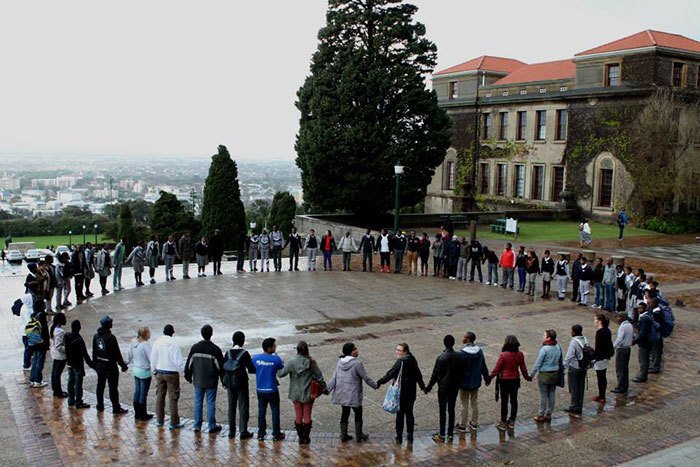Re-ACT conference gets to grips with social responsiveness
12 June 2015 | Story by Newsroom
Student leaders and the Department of Student Affairs will be holding a conference to explore how students are engaged in social responsiveness initiatives and will explore the ways in which students navigate the social, political and other issues of the day.
The Re-ACT Student Social Responsiveness Conference 2015 will take place at UCT from 13 to 16 July. According to co-ordinators Sarah Oliver and Nausheen Sumar it will provide a forum for "exploration, learning and connection, outside the classroom". The theme of the conference is: "Re-ACT: Redefining, re-evaluating and rethinking our social action.
"UCT is currently engaging in deep conversations about transformation and we see social responsiveness as a crucial part of this dialogue. The conference will provide an opportunity for students from Western Cape universities to celebrate achievements and success stories of the way in which social responsiveness is conducted within our respective institutions," says Sumar.
"It creates a space for us to network and critically engage in conversations that help us reflect and evaluate ways through which the student community could be more socially responsive and engage with fellow students regarding community engagement across higher education institutions," she adds.
"This conference hopes to firstly provide attendees with a social tool kit of practical skills for navigating the dynamics of community engagement in South Africa," explains Oliver. "We hope to create opportunities for collaboration and networking through which participants can hone their leadership skills. Lastly, we hope that, as student leaders, we can tackle the question of, how do we want South Africans to look differently and feel differently about social responsiveness, and to understand what our role is in this process."
For more information contact: sarah.cc.oliver@gmail.com or nausheen.sumar@gmail.com.
 This work is licensed under a Creative Commons Attribution-NoDerivatives 4.0 International License.
This work is licensed under a Creative Commons Attribution-NoDerivatives 4.0 International License.
Please view the republishing articles page for more information.










